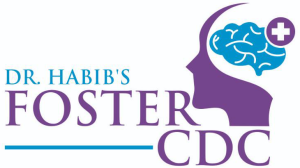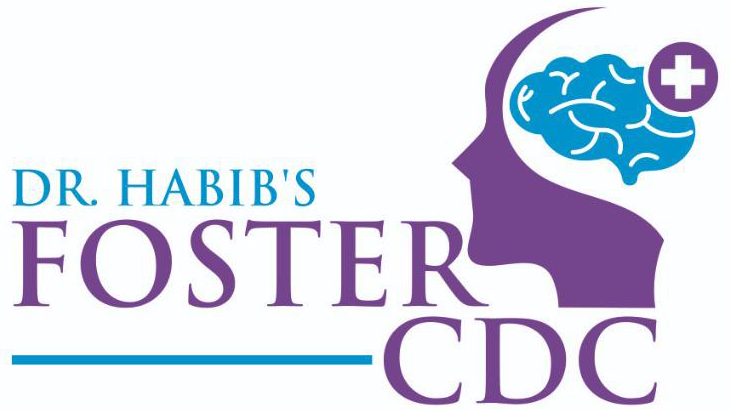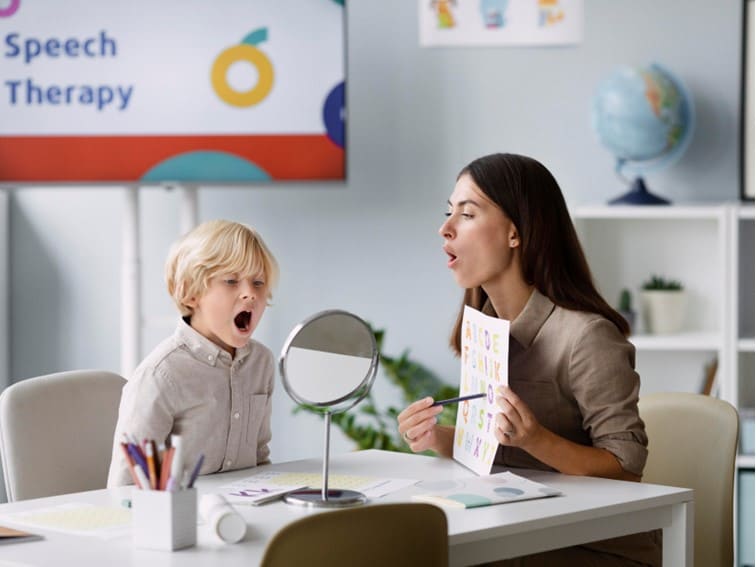Childhood Apraxia of Speech: This condition affects children when they begin to speak. Childhood apraxia of speech is a neurological motor speech disorder that affects children. A child with this condition wants to say or speak but is unable to form the words. This happens because the brain doesn’t properly coordinate the speech movements and the muscles involved in speech movement don’t perform normally.
A child’s brain must learn how to make plans that direct the child’s speech muscles and how to move the tongue, lips, and jaw in ways that result in apt words and sounds with normal rhythm and speed. A child with childhood apraxia of speech lacks this ability.
Symptoms of Childhood Apraxia of Speech
The symptoms associated with this condition vary depending on the age and severity of the speech problem. In general, a child with this disorder lacks the ability to form words or forms only a few words or sounds; speaks a limited number of words. There is also a delay in the onset of the first words that the child speaks usually. If a child has these symptoms between the ages of 18 months and two years, then there is a strong indication of suspected CAS.
The speech of a suspected child is most likely associated with voicing errors, problems with the separation of syllables in or between words; vowel and consonant distortions.
The child may also find it difficult to move their jaw, lips, and tongue to the correct position to speak – and the speech lacks a smooth transition to making the next sound.
Many children also have difficulty with word order and vocabulary; and also, difficulty imitating simple words.
Causes of CAS
Though there are a number of possible causes, the exact cause of childhood apraxia of speech can not be determined in many cases. Neurologists don’t observe any issue in the brain of a child with childhood apraxia of speech. CAS may be due to infections, brain injury, a stroke, or a traumatic brain injury. It can also be due to a metabolic condition, syndrome, or genetic disorder.
Diagnosis of CAS
The diagnosis of CAS in some cases is a bit tricky as some symptoms mimic the symptoms of other types of speech or language problems. However, some children’s symptoms are unique to children with CAS.
A child neurologist examines the child thoroughly and review the child’s medical history and symptoms and examines the muscles used for speech. The doctor will also examine how the child is making sounds and speaking words and phrases and the child’s ability to understand speech.
The other tests to diagnose CAS include speech evaluation, oral-motor assessment, and hearing test.
Treatment
Speech-language therapist at Dr. Habib’s Foster CDC provides therapy. For severe cases of CAS, the frequency of speech therapy is more. Individual speech therapy is beneficial as the child has more time to practice. Our speech-language therapists use different techniques to impart speaking skills to the child. There are different speech therapy approaches including speech drills, speaking practice sessions, sound and movement exercises, vowel practice and paced learning.
Bottom Line
Children with CAS need speech therapy to make maximum progress. A speech-language pathologist will help your child improve their communication skills.
Early detection of speech problems in the initial stages can help minimize the long-term risk of speech difficulties and the persistence of the problem. If you notice any of the symptoms of speech difficulties, you should see a pediatric neurologist and have the issue evaluated by the doctor.
A speech therapist at Dr. Habib’s Foster CDC will help your child practice and learn the correct way to say words, phrases, and syllables with accurate sounds, rhythm, and normal speed.



